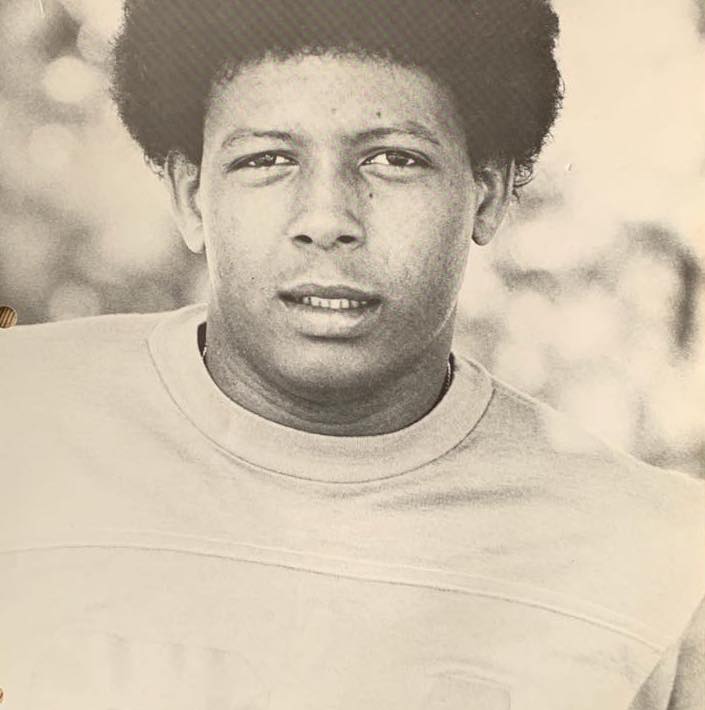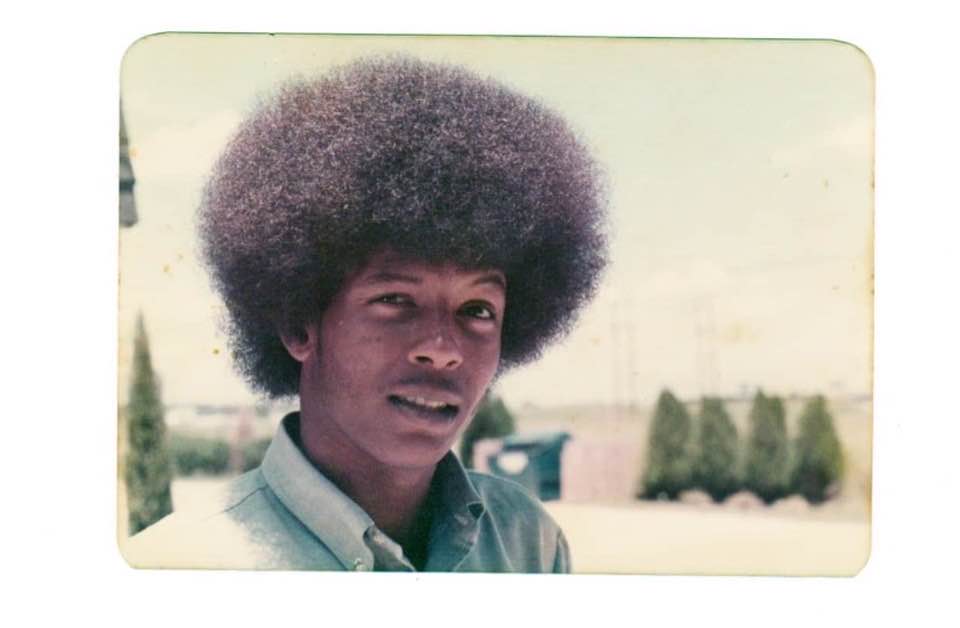
College hair
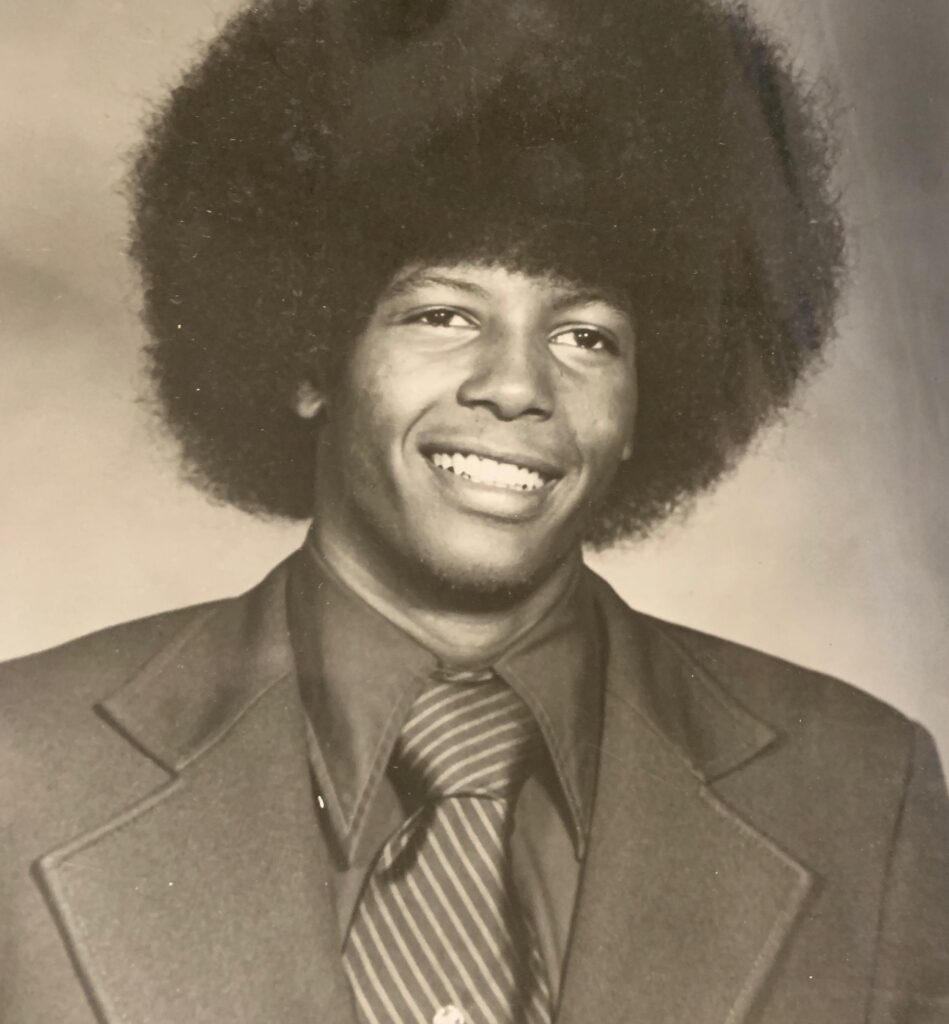
Then off to college as a freshman Political Science major until he got involved with classes in his chosen minor, Theatre and he ended up graduating with a double major in Political Science and Theatre with a Teaching Certificate (“To fall back on.”)
While in college, highlights included approaching the chairman of the Theatre Department along with his college roommate, Thomas Carter to do something about the limited opportunities for Theatre majors of color to do roles in department productions. (Even though there were only a handful of Black majors in the department at the time.) The result was the creation of the Ebony Players and a department production of Lorraine Hansbury’s A Raisin in the Sun.
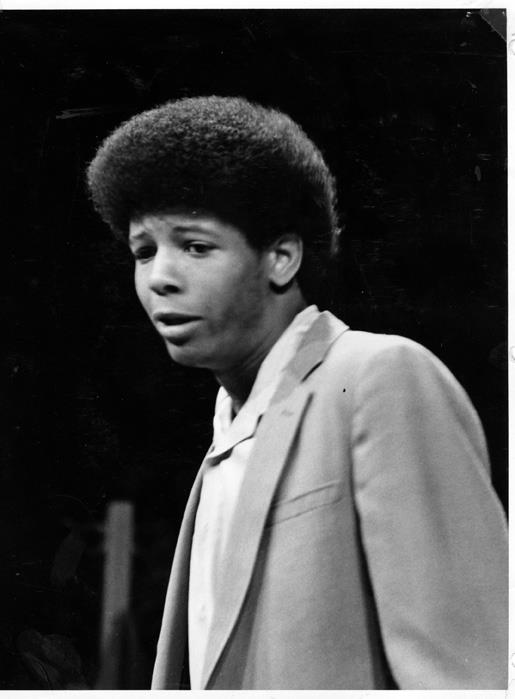
“A Raisin in The Sun” was performed by Southwest Texas State University Ebony Players for President Lyndon Johnson on his ranch early 70’s.
After its run on campus, the cast was invited to perform the play in a command performance for former President (and Southwest Texas State University alumnus) Lyndon Baines Johnson at his ranch in Johnson City, Texas.
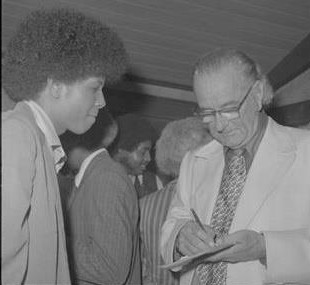
Eugene Lee and President Lyndon B. Johnson
Following the performance, President Johnson wrote a check for ten thousand dollars to the group, and the following year (Eugene and Thomas’ senior year) the Ebony Players mounted a production of Lonne Elder’s Ceremonies in Dark Old Men. The two also got other opportunities to create roles in department productions including Shakespeare and others.
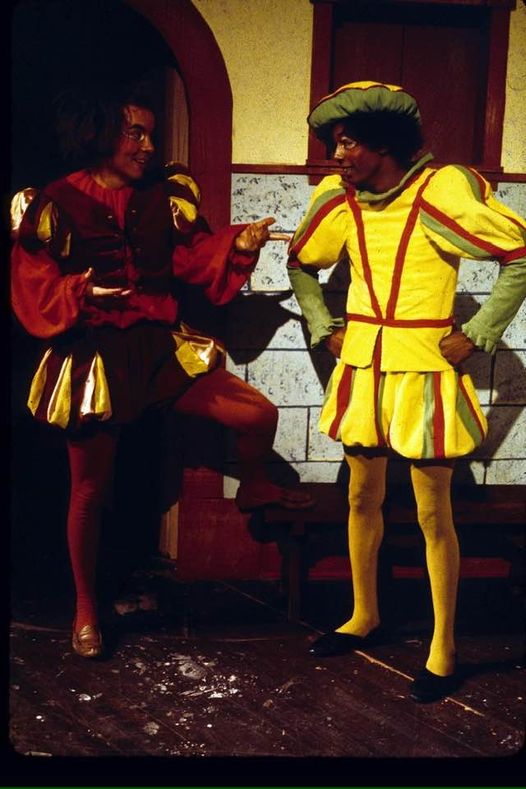
Early’70’s in college. Biodello in “Taming of the Shrew”. Yellow tights rule!
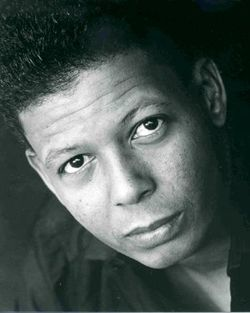
Upon graduation, Eugene went back to Fort Worth and took a position at age 21 teaching Speech and Drama and coaching Debate and track and tennis and directing the one-act play and just about everything except always driving the bus. Every summer he’d have some dollars saved to make a trip to LA and try his hand at the business of acting there all the while during the school year working on radio as a news announcer and doing local commercials and industrial management training films and doing extra work in films and television shows, like the first five episodes of the original Dallas series, that were shot in Dallas.
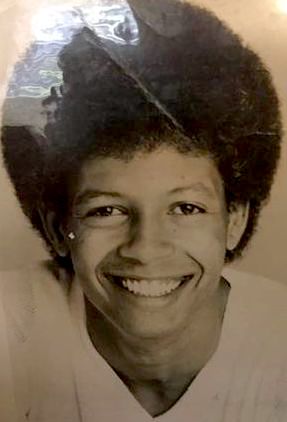
He also stayed busy working in local Metroplex community theatre productions with Dallas Minority Rep, Sojourner Truth Players, and Jubilee Theatre in Fort Worth.
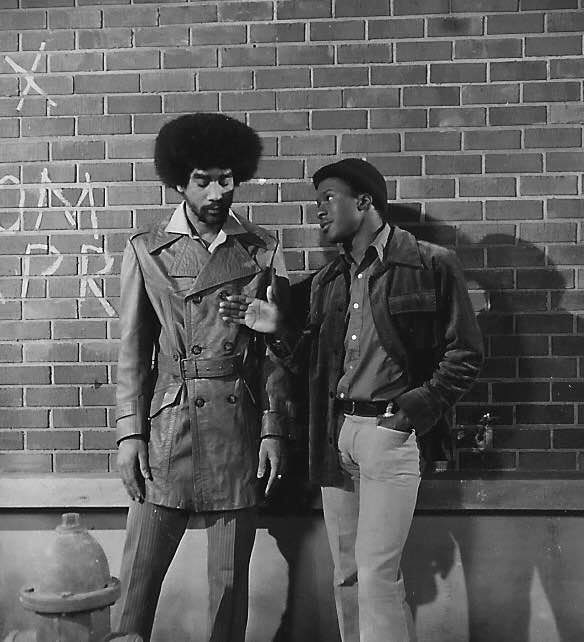
PBS KLRN Austin, Texas 1974
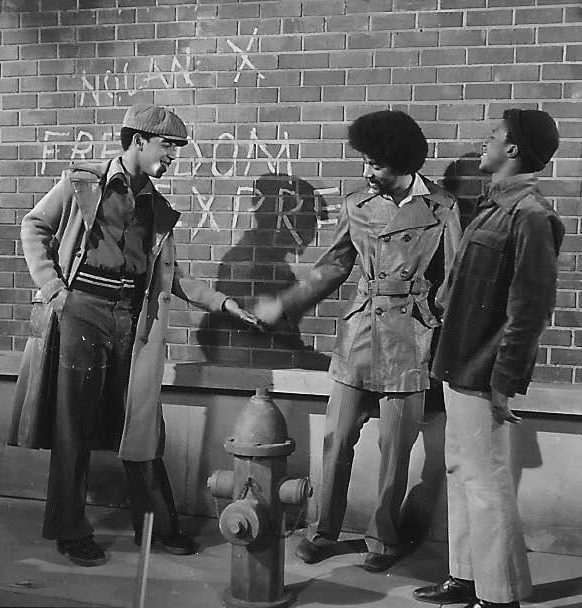
During this four-year period, he auditioned for the top MFA programs in acting at the top Universities and took the Law School Admissions Test still clinging to the possibility of a career as an attorney. Then one week in the Spring of 1978 he received a letter of acceptance to South Texas Law School. That same week he got a letter of acceptance to the MFA program in acting at New York University and acceptance into the MFA acting program at Southern Methodist University in Dallas. (It should be noted that also around this time Eugene participated in a production at Southern Methodist University where he had the chance to meet and work with Douglas Turner Ward, Artistic Director and Co-Founder of New York’s Negro Ensemble Company, who was on the campus as a guest artist.) The same week he received the acceptance letters to Law School and to the Graduate programs in Acting Eugene also was cast in, Cotton Candy, a television movie of the week that was shooting in Dallas that Spring while playing a High School student. The movie was actor-turned-director Ron Howard’s directorial debut. Standing at a crossroads for diverse paths to his future, Eugene opted to pass on the graduate school options, resign from his teaching position at the High School in Fort Worth and take the role in Ron Howard’s film.
When the shooting was over, he packed his things and moved West to Hollywood early summer of 1978 in time to crash an audition as they were replacing the role of Lionel on the series, The Jeffersons, and he got a call back which didn’t land him that job, but the following week, he did get hired by the same casting director for a role on an episode of the series, Good Times and that was followed in the ensuing months by a couple of appearances on The White Shadow and as a guest bachelor on The Dating Game.
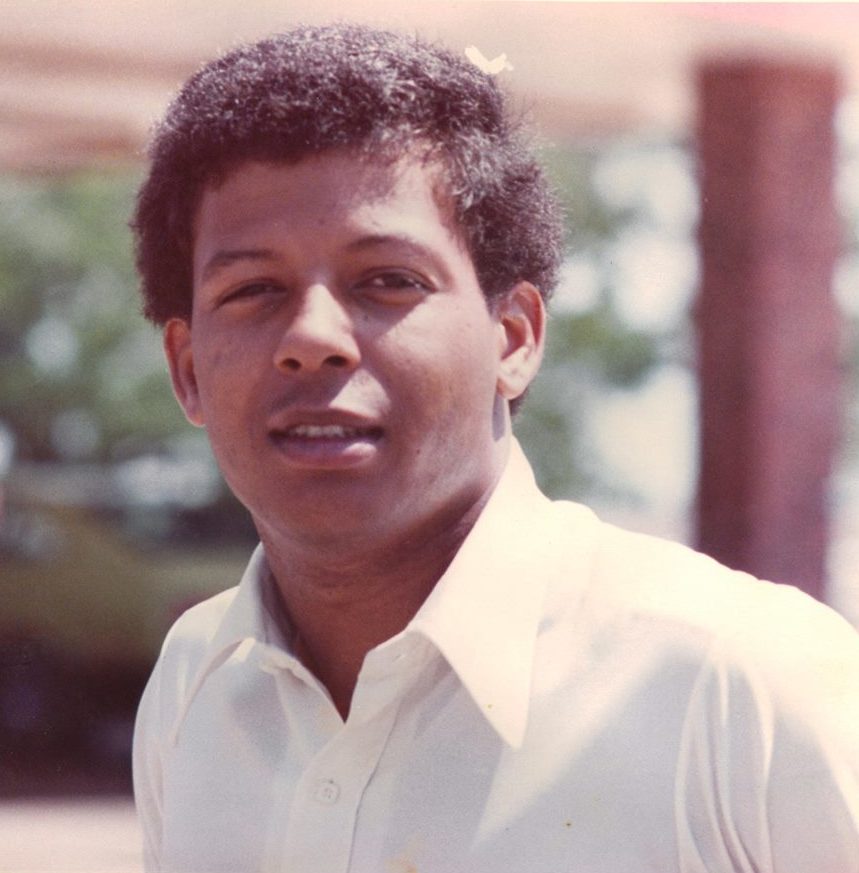
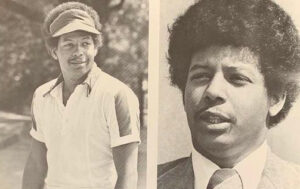 Easter the following year, 1979, he got a cheap ten-day round trip ticket to the East Coast to visit family there for the holidays. When he got there, he got in touch with a manager he’d met in LA who got him an audition for a Ragu spaghetti sauce commercial which he booked, and on the tenth day, he wasn’t on a plane back to LA but on a set in New Rochelle shooting that commercial and over the next six months he was fortunate to shoot six national spots and get hired in the original company of what was to become one of the country’s most noted new Black Theatre companies, Crossroads Theatre Company in the city of his birth New Brunswick, New Jersey.
Easter the following year, 1979, he got a cheap ten-day round trip ticket to the East Coast to visit family there for the holidays. When he got there, he got in touch with a manager he’d met in LA who got him an audition for a Ragu spaghetti sauce commercial which he booked, and on the tenth day, he wasn’t on a plane back to LA but on a set in New Rochelle shooting that commercial and over the next six months he was fortunate to shoot six national spots and get hired in the original company of what was to become one of the country’s most noted new Black Theatre companies, Crossroads Theatre Company in the city of his birth New Brunswick, New Jersey.
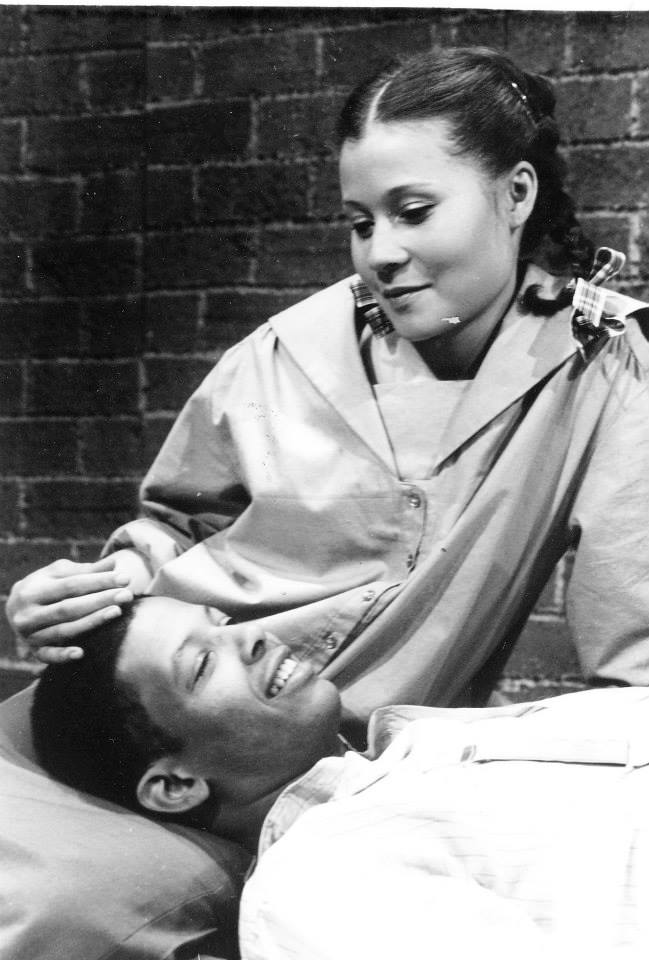
EDEN – Eugene Lee and Judy Tate
Crossroads Theatre Company (NJ)
As an original member of that company which operated under the umbrella of the established George Street Playhouse as a Comprehensive Employment and Training Act (CETA) project, he played roles in their productions of Steve Carter’s, Eden, One Monkey Don’t Stop No Show, Ceremonies in Dark Old Men, Purlie, a cabaret titled, On The Corner to name a few. Then came an audition for Douglas Turner Ward and the Negro Ensemble Company in New York. Mr. Ward remembered him from when they’d worked together at SMU and Eugene’s first job with that prestigious company was as understudy to Samuel L. Jackson on the Southern Tour of the Samm Art Williams’ play, Home after its Broadway run.
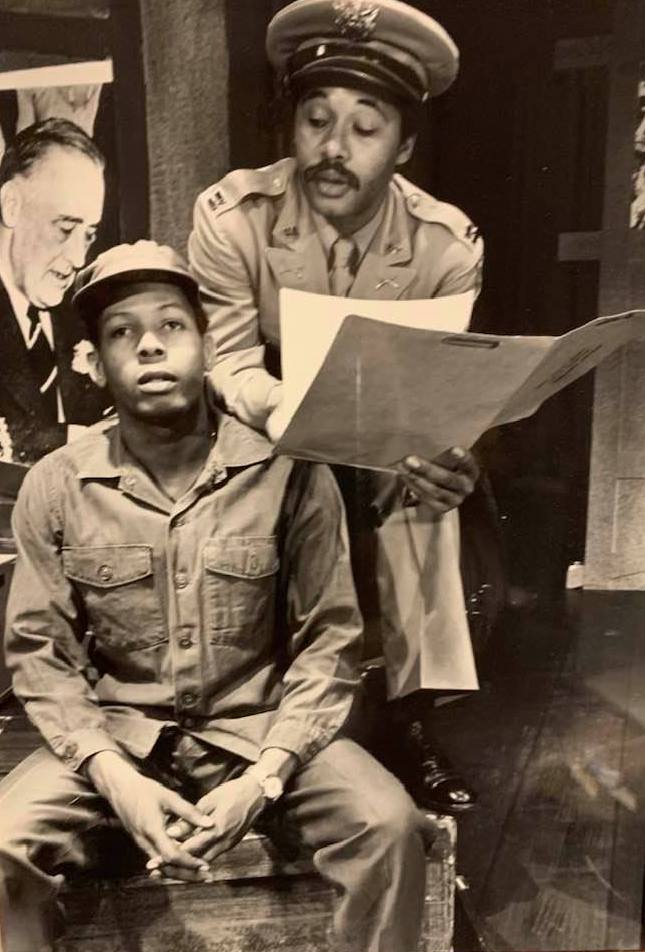
“A SOLIDER’S PLAY“
Eugene Lee and Charles Brown
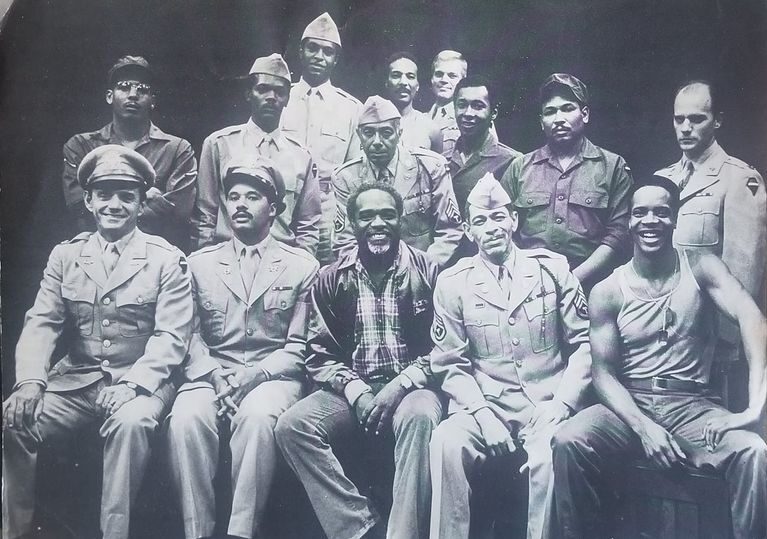
The original New York cast included Adolph Caesar as Sergeant Waters, Denzel Washington as Private Peterson, Larry B. Riley as Private C.J. Memphis, Samuel L. Jackson as Private Louis Henson, Peter Friedman as Captain Charles Taylor, Charles Brown as Captain Davenport, and Larry Riley as C J Memphis. Graham Brown, Steven Settler, Brent M. Jennings, Eugene Lee, Steven Jones, James Pickens, Jr., O L Duke, and Cotter Smith. (Douglas Turner Ward -Director) Theatre Four, New York, NY.
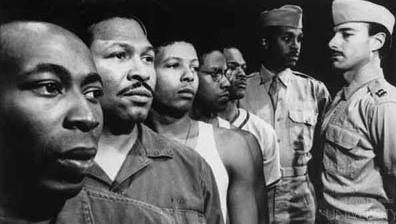
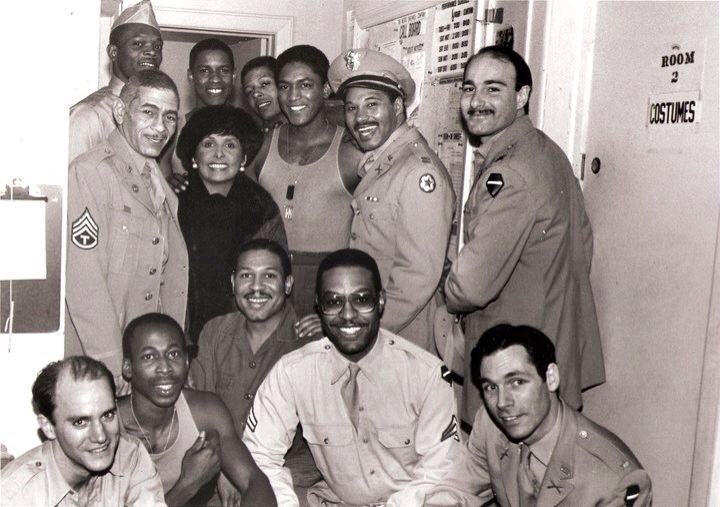
A SOLDIERS PLAY
The NEGRO ENSEMBLE COMPANY “A SOLDIERS PLAY” LENA HORNE Steven Settler, Brent M. Jennings, Adolph Caesar, Samuel L. Jackson, Denzel Washington, Lena Horne, Eugene Lee, Larry Riley, Charles Brown, Steven Jones, James Pickens, Jr., Peter Friedman and Cotter Smith at Theatre Four, New York, NY.
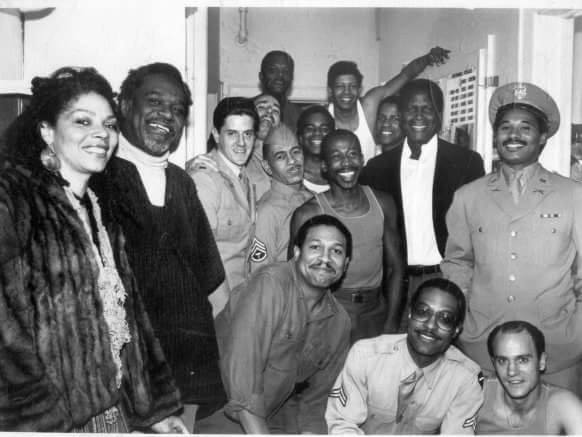
Rosalind Cash, Sidney Poitier, and Douglas Turner Ward backstage after a performance of “A Soldier’s Play,” by Charles Fuller at the NEC (Negro Ensemble Company) in NYC (circa 1981).Steven Settler, Brent M. Jennings, Adolph Caesar, Samuel L. Jackson, Denzel Washington, Eugene Lee, Larry Riley, Charles Brown, Steven Jones, James Pickens, Jr., Peter Friedman, and Cotter Smith at Theatre Four, New York, NY.
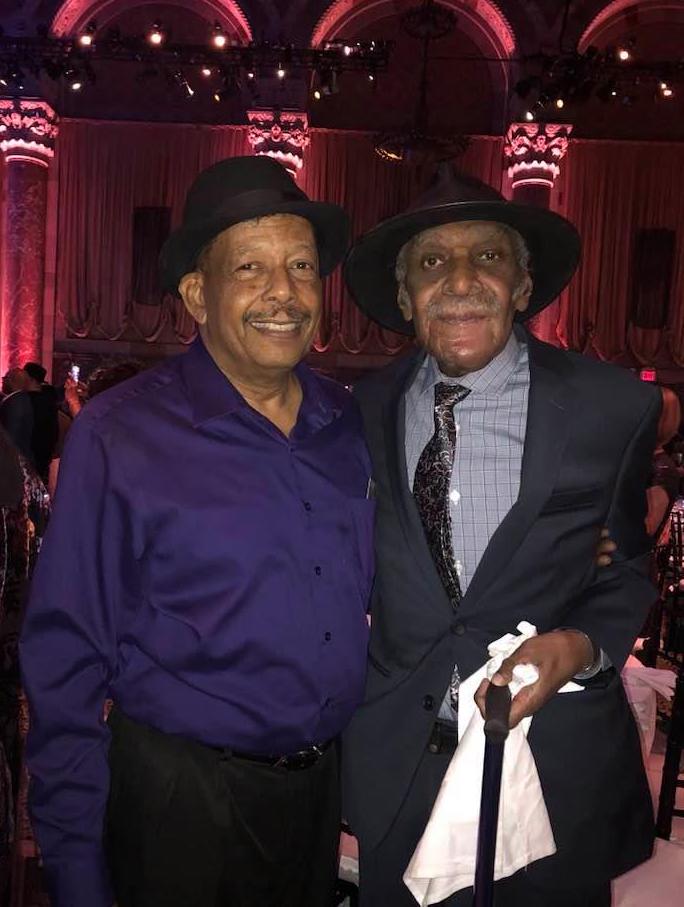
Eugene Lee and Douglas Turner Ward
That tour eventually led to more work with NEC (Negro Ensemble Company) which started with being cast in the original cast of Charles Fuller’s Pulitzer Prize-winning, A Soldier’s Play which became the company’s first million-dollar grossing production and kept him busy in New York and on the National tour for over two years.
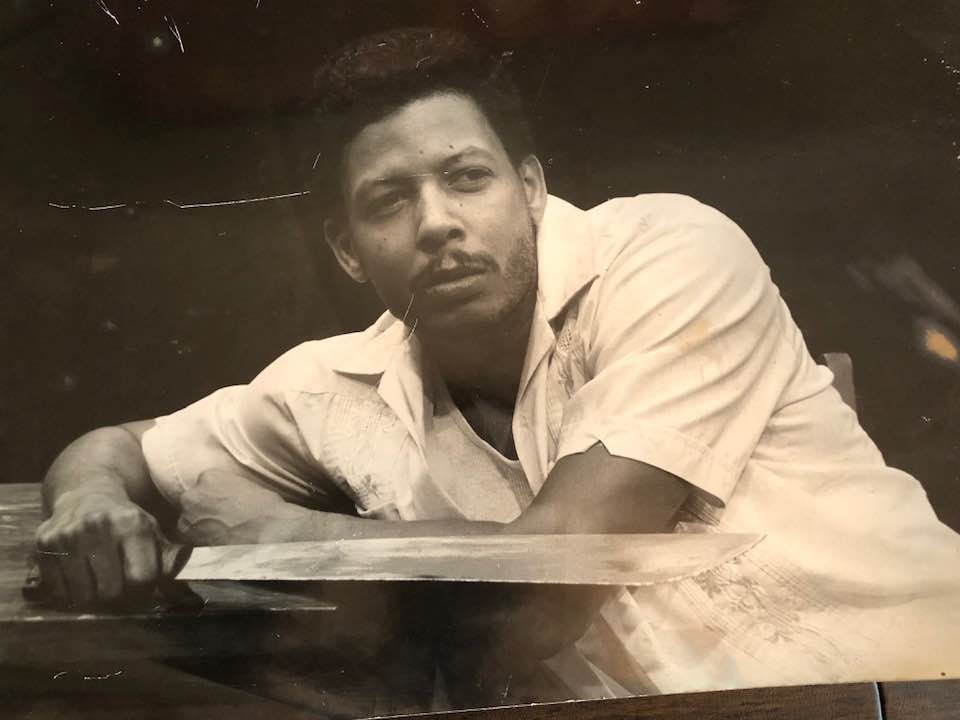
Eugene Lee in a production of “Eyes of the American” by Samm Art Williams at Negro Ensemble Company.
For four seasons, he was involved with practically every NEC production including, Gus Edwards’, Manhattan Made Me, Nightline, Douglas Turner Ward’s, The Redeemer, Sons, and Fathers of Sons by Ray Aranha. During that time in New York, he also spent a year and a half on the soap opera, The Guiding Light, and was able to work at the WPA Theatre in New York and in Baltimore at Center Stage in James Yoshimura’s Ohio Tip Off.
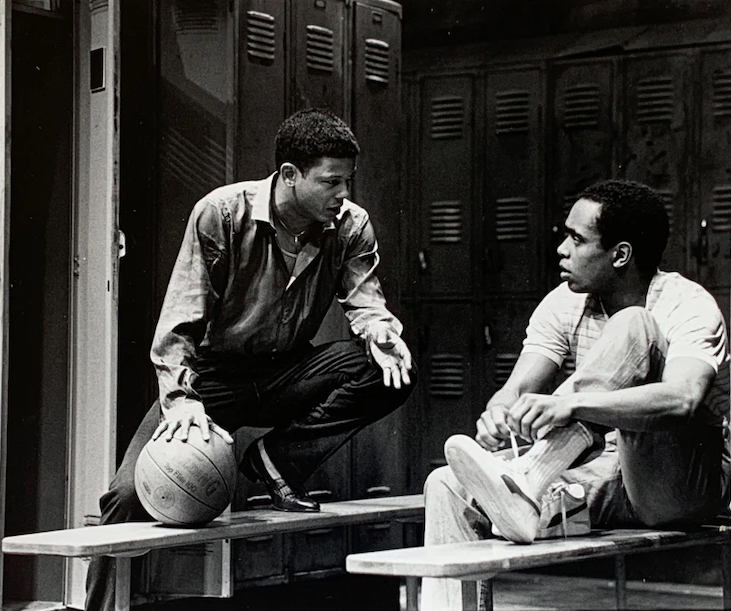
Ohio Tip-Off by James Yoshimura, Directed by John Pasquin—WORLD PREMIERE – Baltimore Center Stage (1984)
New York proved a great place to develop his chops as an actor and stimulating as he took advantage of participating in a slew of informal new play readings and development workshops all over Manhattan and the weekly Monday night readings up in Harlem at the Frank Silvera Workshop and stepping in for Denzel Washington in Laurence Holder’s When the Chickens Come Home to Roost in the role of Malcolm for touring with Woody King and the New Federal Theatre. The NEC (Negro Ensemble Company) only did new works and this is where he grew to love the process of realizing new scripts which eventually led him to write his first play, Killingsworth a somewhat biographical drama about a middle-class Black family in Tyler, Texas. That play was initially read and helped in development with fellow actors from the NEC and later in Los Angeles when Eugene made a return there mid-1980s to again work in television and film. Killingsworth was mounted in Fort Worth by Rudy Eastman and the Jubilee Theatre as well as The Arena Players Theatre in Baltimore and Black theatre companies in other cities across the country.
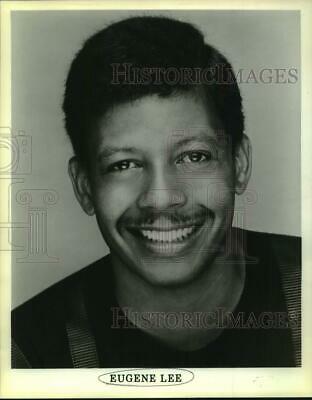
1985
Then came a few years of bi-coastal living doing West coast episodic television gigs and returns to the East coast to work on stage in New York with the NEC in productions like Samm Art Williams’, Eyes of the American (which he stepped in to replace Glynn Turman and he also did the Los Angeles LA Actors Theatre production) and Los Angeles theatre productions including the Mayfair theatre production of Split Second with Denzel Washington and Alfre Woodard, Jason Bernard and John Amos.
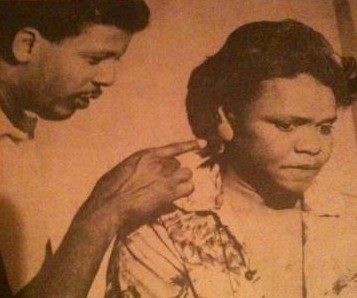
Eugene Lee and Adella Gautier in Dashiki Project Theatre’s production of Dennis McIntyre’s SPLIT SECOND. New Orleans, LA (Oct. 1984)
Later in the 1980s, he married his wife Clarice in Baltimore, and they settled in Los Angeles where he continued to work in episodic television and on stage at LATC in several productions including Samm Art Williams’ Woman From the Town with Roxie Roker, and Loretta Devine and won an NAACP Theatre Award for his performance.
He was featured in the episodic and television mini-series appearances including The Women of Brewster Place where he worked alongside Oprah Winfrey as her spoiled son Basil.
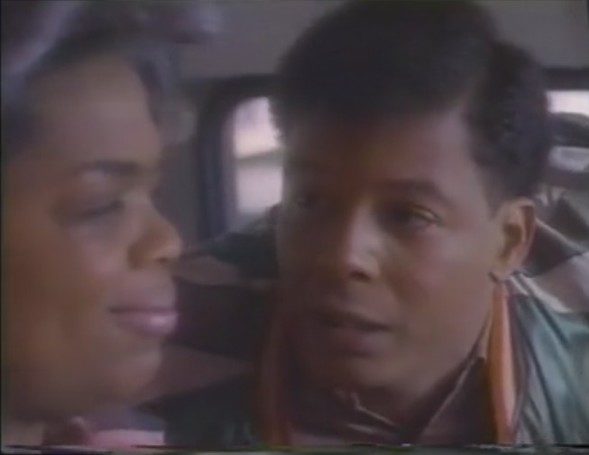
Oprah Winfrey and Eugene Lee ~ The Women of Brewster Place.
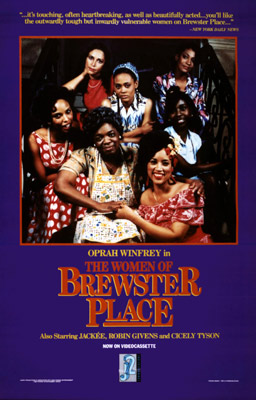
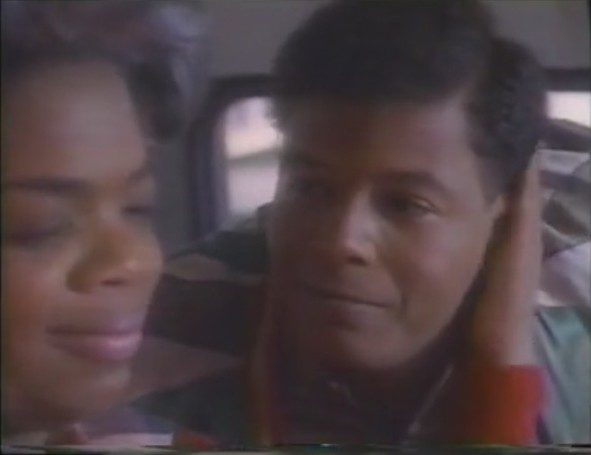
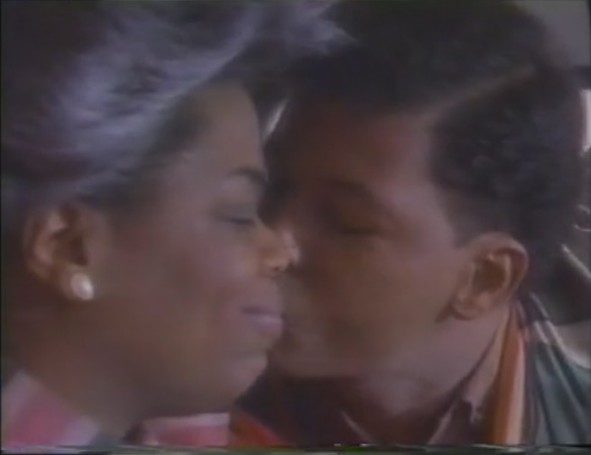
“Women of Brewster Place”
Oprah Winfrey
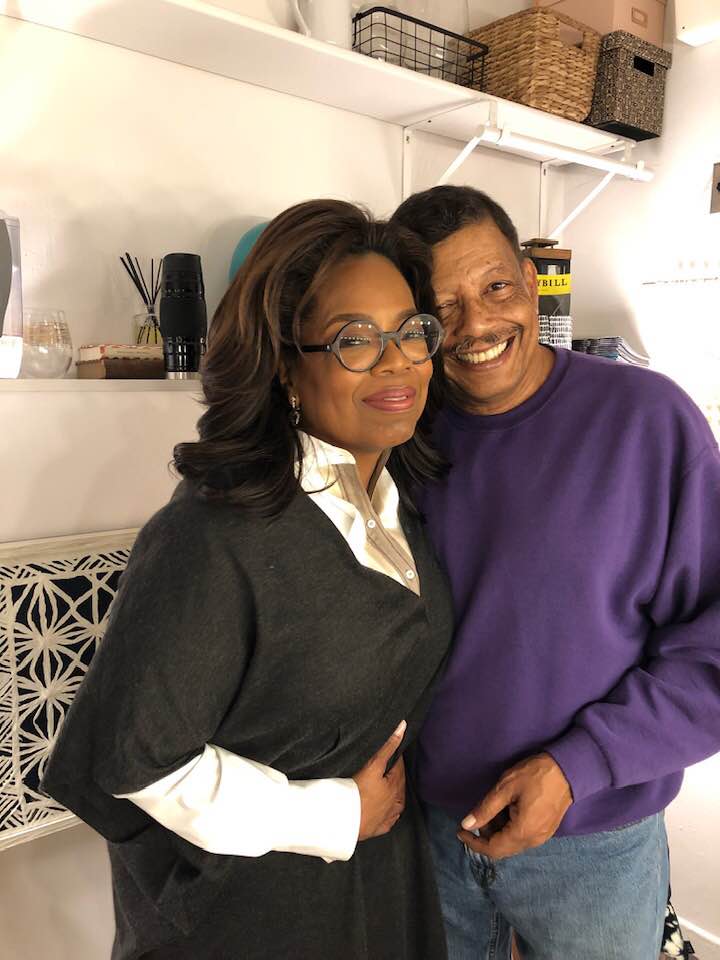
It was wonderful to reunite with my “Mama” from “The Women of Brewster Place” after all this time. (2019)
The Women of Brewster Place
The District
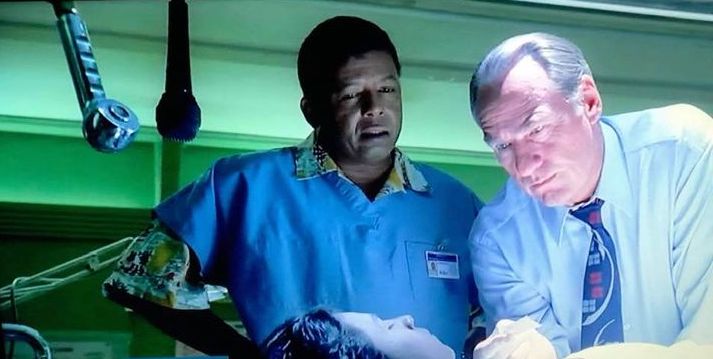
The District – Craig T. Nelson

